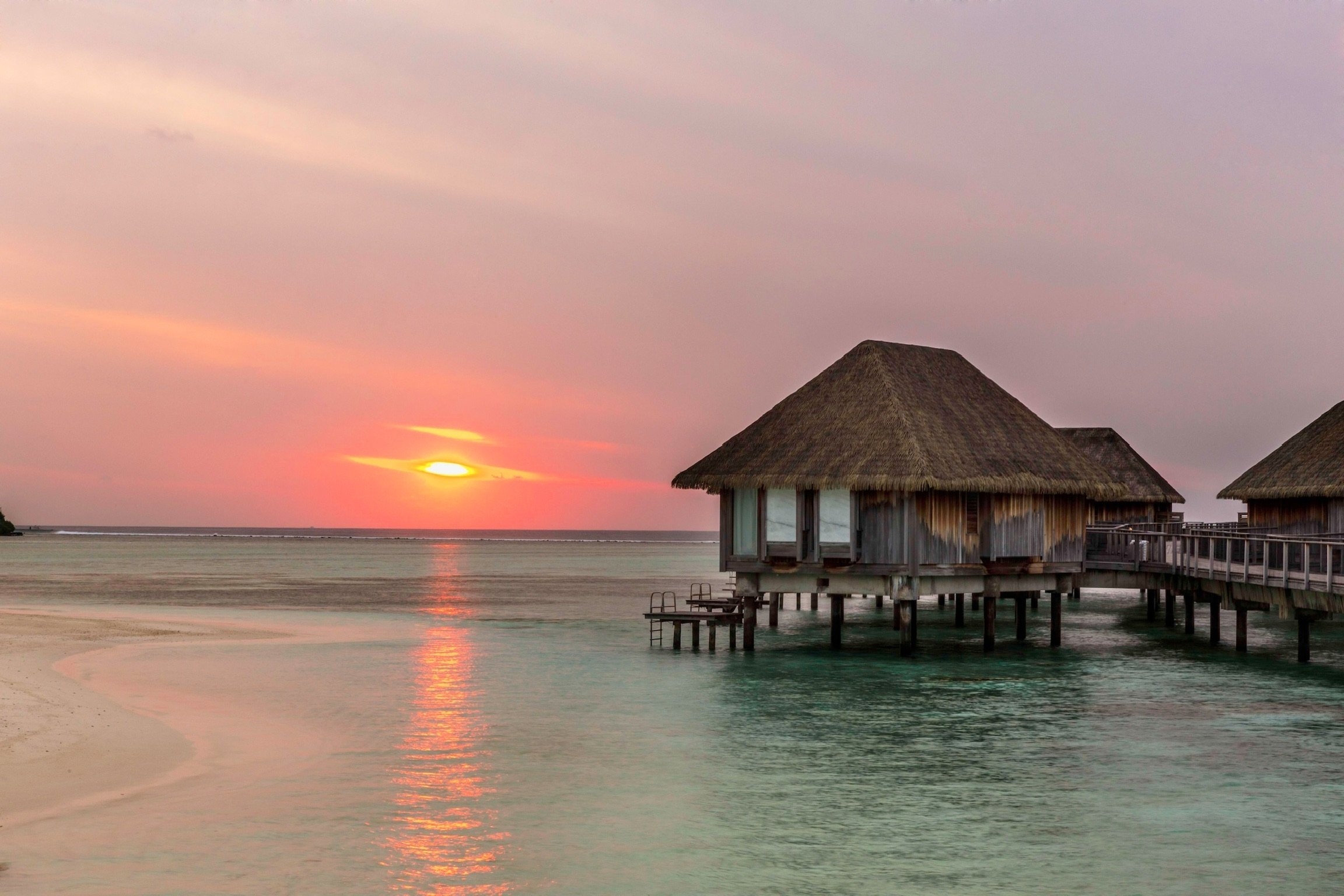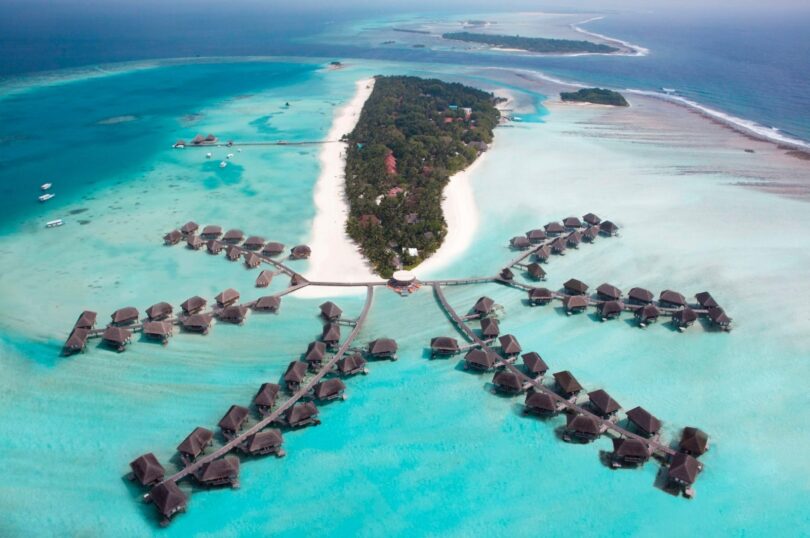Web Desk
MALDIVES : The Maldives is confronting the devastating reality of rising sea levels, but sustainable initiatives such as the Maldives Clean Energy Initiative, the Maldives Marine Protected Area Initiative, the Maldives Sustainable Tourism Initiative and the plastic pollution reduction project provide hope for the future of this unique and fragile island nation
The Maldives is facing the devastating reality of rising sea levels. Scientists say 80% of the Maldives could be uninhabitable by 2050. As the world watches the Maldives confront this existential threat, it is time for all of us to take action to address climate change. To bring attention to this critical issue, I traveled to the Maldives to witness the effects of climate change firsthand upon an invitation.
As a traveler who is passionate about sustainability, I recently had the opportunity to visit Club Med Kani as a guest in the Maldives, a resort known for its commitment to sustainable tourism. During my stay, I was impressed by the resort’s efforts to minimize its environmental impact and promote sustainability through a range of initiatives and programs. The fate of this unique and fragile island nation is in our hands, and we must act now to ensure that it survives for generations to come.
During my stay at Club Med Kani, I had the opportunity to learn more about the resort’s sustainability initiatives through guided tours and informational sessions. I was impressed by the level of commitment and attention to detail that the resort demonstrates in its sustainability efforts. From waste management to renewable energy, every aspect of the resort’s operations is designed with sustainability in mind. According to Club Med Türkiye Director Özlem Tosun, the brand has a Club Med Foundation dedicated to this cause, and 80% of their hotels have obtained sustainability certificates.

Their commitment to sustainability is evident in the construction of their Maldives resort, which was built with great care and attention to preserving the unique natural environment in which it is located. At Club Med Finolhu Villas, for example, 6,000 square meters of solar panels generate about 40% of the resort’s electricity needs. This innovative approach not only reduces the resort’s carbon footprint but also demonstrates the potential of renewable energy sources to power the hospitality industry.
I had the opportunity to experience the wonders of marine life up close with Club Med’s professional diving team in the Maldives and caught glimpses of protected sea turtles and baby sharks, observing them in their natural habitat. The colorful corals and diverse fish species were like something out of a documentary, and snorkeling among them was a truly unforgettable experience.
In addition to supporting sustainable projects and initiatives, travelers can also take steps to reduce their environmental impact while on the road. The Maldives government has launched several sustainable projects aimed at protecting the country’s natural resources and reducing its carbon footprint. These initiatives include the Maldives Clean Energy Initiative, the Maldives Marine Protected Area Initiative, and the Maldives Sustainable Tourism Initiative. While these projects are essential to the country’s survival, the Maldives still faces a significant challenge in the coming years. Rising sea levels are already causing damage to the country’s coral reefs, which are vital to the local ecosystem and the tourism industry.
The potential loss of the Maldives due to climate change is a sobering reminder of the urgent need to address global warming. As we witness the effects of climate change on countries like the Maldives, it becomes clear that we must take action to reduce our carbon footprint and protect the planet.

Sustainable projects
To address this challenge, the Maldives government has launched a series of sustainable projects aimed at protecting the country’s natural resources and reducing its carbon footprint. These projects are critical to ensure the survival of the Maldives in the face of climate change.
One such project is the “Maldives Clean Energy Initiative.” This program aims to reduce the country’s dependence on fossil fuels and promote the use of renewable energy sources. The initiative involves the installation of solar panels and wind turbines across the country to generate clean electricity. The government hopes to achieve a target of 30% renewable energy by 2025.
Another project is the Maldives Marine Protected Area Initiative. This program aims to protect the country’s rich marine life and coral reefs, which are vital to the local ecosystem and tourism industry. The initiative involves creating a network of marine protected areas and implementing sustainable fishing practices to ensure the long-term survival of these resources.
The Maldives Sustainable Tourism Initiative is also a critical project for the country’s survival. This program aims to promote sustainable tourism practices and reduce the environmental impact of the tourism industry. The initiative includes the development of eco-friendly resorts and the promotion of sustainable tourism activities, such as reef cleaning and marine conservation projects.

Furthermore, the Maldives government is implementing a project to reduce plastic pollution in the country’s waters. This initiative includes a ban on single-use plastics and the promotion of plastic recycling programs to reduce the amount of waste that ends up in the ocean.
In conclusion, traveling for a better world means supporting sustainable projects and initiatives that protect the environment and promote social and economic development. By choosing responsible and sustainable travel practices, we can help ensure that future generations can enjoy the same rich and diverse travel experiences that we do today. The Maldives is facing a significant threat due to climate change, but the government’s sustainable projects are providing hope for the future of this beautiful island nation.
The Maldives Clean Energy Initiative, the Maldives Marine Protected Area Initiative, the Maldives Sustainable Tourism Initiative and the plastic pollution reduction project are just a few examples of the country’s commitment to sustainability. These initiatives are essential to the Maldives’ survival and serve as an example for other countries facing similar challenges. By working together to protect our planet, we can ensure a sustainable future for generations to come.
Courtesy: Dailysabah







